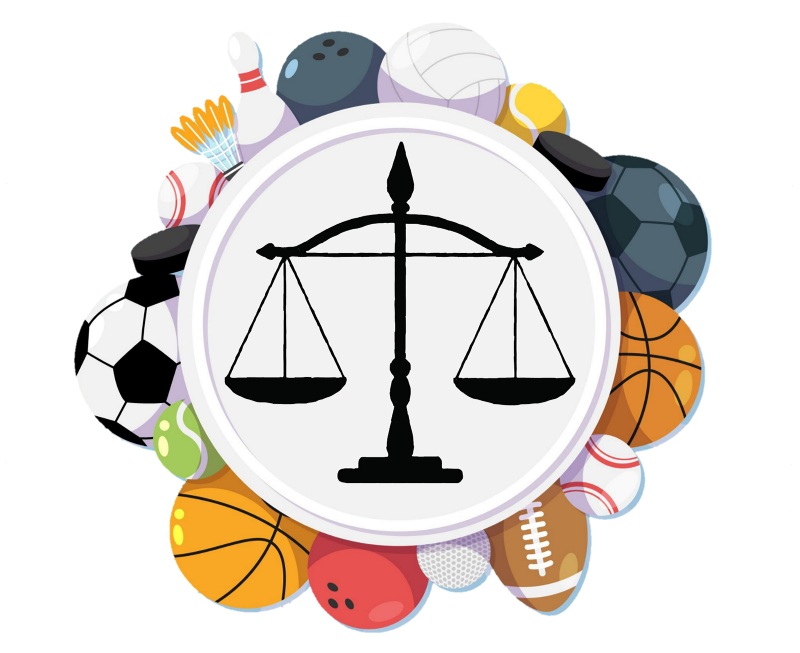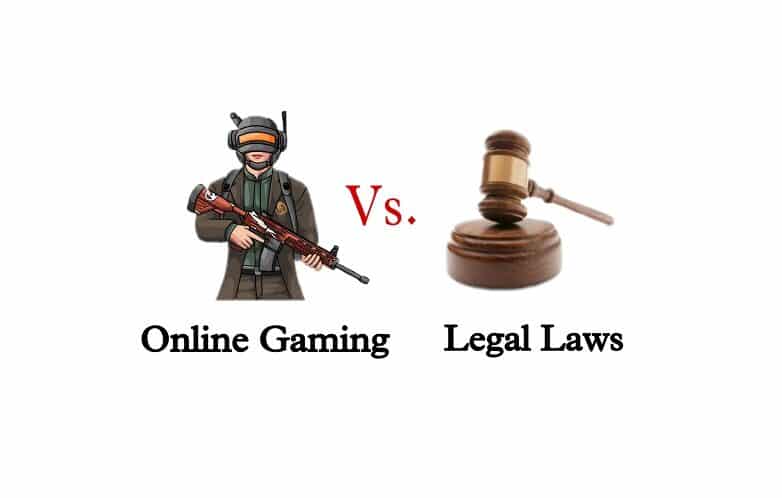Introduction : Sports Laws in India
In India, the term “sports laws” refers to a body of laws that control the country’s sports community. These laws aim to promote, regulate and develop the sports sector in India, to ensure fair play, prevent sporting fraud, and protect the rights of athletes, coaches, and sports organizations. Indian sports laws address a variety of topics related to sports, including administration, funding, doping, broadcasting, intellectual property, contract and employment laws, and dispute resolution procedures. These laws are implemented and enforced by various government bodies and regulatory authorities, such as the Ministry of Youth Affairs and Sports, Sports Authority of India, National Anti-Doping Agency, and All India Football Federation, among others.
The process of creating new sports laws and regulations in India has been ongoing in order to keep up with how the sports industry has evolved over time. The National Sports Development Code of India, 2011 is a comprehensive law that governs the administration and management of sports in India, while other laws such as the Prevention of Sporting Fraud Bill, 2013, and the Sports (Online Gaming and Prevention of Fraud) Bill, 2018, focus on preventing corruption and fraud in sports.
Overall, sports laws in India are essential in forming the nation’s sports industry, encouraging fairness and transparency, and defending the rights of all parties involved in the sports ecosystem.
Government Bodies Regulating Sports in India
The sports industry in India is regulated by various government bodies and regulatory authorities. These bodies play a critical role in developing and promoting sports, ensuring fair play, and protecting the interests of athletes, coaches, and sports organizations. Here are some of the key government bodies and regulatory authorities that regulate sports in India:
The Ministry of Youth Affairs and Sports : The Ministry of Youth Affairs and Sports is the primary government body responsible for the development and promotion of sports in India. The Ministry formulates and implements policies and programs to encourage sports participation and promote excellence in sports. The ministry was formed in 1985, and its primary objective is to provide a conducive environment for the development of sports in India. Some of the key initiatives taken by the ministry include the Khelo India program, which aims to identify and nurture young sporting talent in the country, and the Fit India movement, which aims to promote physical fitness and healthy lifestyles among the population. The ministry also provides financial support to athletes and sports organizations through various schemes and programs.
In addition to sports-related activities, the ministry is also responsible for the development of youth-related programs and policies. The ministry works closely with various youth organizations, such as the National Service Scheme (NSS) and the Nehru Yuva Kendra Sangathan (NYKS), to provide opportunities for young people to engage in activities that promote their personal and professional development.
Sports Authority of India (SAI): The Sports Authority of India is a statutory body established to promote sports and develop world-class sports infrastructure in India. SAI also provides financial assistance to sports organizations and athletes and conducts training and coaching programs to improve the performance of Indian athletes.
National Anti-Doping Agency (NADA): NADA is an independent body tasked with preventing and detecting the use of banned substances by athletes in India. NADA conducts drug tests at various sporting events and educates athletes and coaches about the dangers of doping.
All India Football Federation (AIFF): AIFF is the governing body of football in India. He is responsible for the promotion and development of football in the country and also selects the Indian football team.
Board of Control for Cricket in India (BCCI): BCCI is the governing body of cricket in India. It organizes and regulates cricket tournaments in the country, including the Indian Premier League (IPL).
National Sports Federations (NSFs): NSFs are independent bodies recognized by the Government of India responsible for various sports in the country. There are currently 49 NSFs in India, including the Indian Olympic Association, the Indian Athletics Association and the Indian Badminton Association.
These governing bodies and regulatory bodies play a vital role in the regulation and development of sports in India. They provide the necessary infrastructure, funding and support to promote participation and excellence in sport and to ensure that sports organizations and athletes operate with integrity and transparency.
Laws Governing Sports in India
The sports industry in India is governed by various laws and regulations. The purpose of these laws is to promote justice, prevent fraud and corruption, protect the rights of athletes, coaches and sports organizations, and regulate the administration and management of sports. Here are some major sports laws in India:
Indian National Sports Development Code, 2011: The Indian National Sports Development Code is a comprehensive law that regulates the management and administration of sports in India. The rules determine the constitution and functioning of sports bodies, including the Indian Olympic Association and National Sports Federations. It also determines the qualifications, age limits and tenure of officers of these organizations.
Sports Fraud Prevention Act, 2013: The Sports Fraud Prevention Act is a bill to prevent fraud and corruption in sports. The draft aims to criminalize sports fraud, such as match-fixing, match-fixing and betting on sporting events. It also proposes the creation of a National Sports Integrity Commission to investigate and prosecute sports fraud.
Sports (Prevention of Internet Gambling and Fraud) Bill, 2018: The Sports (Prevention of Internet Gambling and Fraud) Bill is a bill to regulate online sports betting and prevent fraud and corruption in sports. The bill seeks to regulate online sports betting platforms, including fantasy sports, as well as criminalize sports fraud committed through these platforms.
The Primary aim of these laws to promote transparency, honesty and integrity in sports and protect the interests of all stakeholders involved in the sports ecosystem. However, these laws must be constantly reviewed and updated to keep up with the changing landscape of the sports industry and emerging challenges in sports governance.
Contractual and Employment Laws in Sports
Contractual and employment laws are critical in the sports industry as they regulate the relationship between athletes, teams, coaches, and other stakeholders. In India, contractual and employment laws in sports have evolved over the years to meet the demands of the industry.
Sports Contracts: Sports contracts are agreements between athletes, teams, and other stakeholders that outline the terms and conditions of their relationship. Sports contracts in India are governed by the Indian Contract Act, 1872, which provides for the enforcement of contracts between parties. Sports contracts typically include provisions related to compensation, performance expectations, termination, and other related matters.
Athlete Welfare: In India, the welfare of athletes is protected by several laws and regulations, including the National Sports Development Code 2011, and the Sports Authority of India Act 1984. These laws require sports organizations to ensure the safety and well-being of athletes, provide them with adequate medical facilities and support, and protect their rights to fair treatment and compensation.
Employment Laws: Employment laws in India also apply to the sports industry. The Industrial Disputes Act, 1947, and the Payment of Wages Act, 1936, are two of the primary laws that govern employment relationships in the sports industry. These laws provide for fair treatment of employees, minimum wage requirements, and other employment-related matters.
Anti-Doping Regulations: Anti-doping regulations are critical in the sports industry to prevent the use of performance-enhancing drugs and to ensure fair play. In India, the National Anti-Doping Agency (NADA) is responsible for enforcing anti-doping regulations. The NADA conducts testing, investigation, and enforcement activities to prevent and detect doping violations in Indian sports.
Foreign Athlete Regulations: In India, foreign athletes who wish to compete in sports events must obtain the appropriate visas and permits. The Ministry of Youth Affairs and Sports and the Sports Authority of India are responsible for issuing the necessary permits for foreign athletes to participate in sports events in India.
Intellectual Property Laws in Sports
Intellectual property rights (IPRs) are essential for the sports industry as they protect the commercial value and exclusivity of sports-related branding, merchandise, and broadcasting. In India, the laws and regulations governing IPRs in sports have evolved over the years to meet the demands of the industry. Here are some additional key points on IPRs in sports in India:
- Trademark Protection: In the sports industry, trademarks are crucial for protecting the logos, names, and other distinctive features of sports organizations, teams, and events. Trademark registration helps prevent unauthorized use of sports-related branding and provides the owner with exclusive rights to use the mark for commercial purposes. It is also important to note that protection of trademarks is not limited to only registered trademarks. Unregistered trademarks, also known as common law trademarks, are also protected under the Trade Marks Act, 1999, if they can establish that they have acquired reputation and goodwill in the relevant market.
- Copyright Protection: Copyrights are important for protecting original content such as sports broadcasts, commentary, photographs, and videos. Copyright registration helps prevent the unauthorized use of such content by third parties and provides the owner with exclusive rights to use, distribute and reproduce the work. It is essential for sports organizations and broadcasters to obtain licenses or consent from the copyright owner before using any copyrighted material to avoid infringement issues.
- Patent Protection: Patents may be relevant for protecting innovative sports equipment, technology, and other inventions. Patent registration helps prevent the unauthorized use or sale of such inventions by third parties and provides the owner with exclusive rights to manufacture, use, and sell the invention for a limited period of time. It is important to note that not all sports-related inventions are eligible for patent protection. The invention must be new, non-obvious, and have industrial applicability to be eligible for patent protection.
- Commercial Arrangements: In addition to legal protection, sports organizations and broadcasters also use various contractual and commercial arrangements to protect their IPRs. For example, sports organizations may enter into licensing agreements with third parties for the use of their trademarks or copyrights. Similarly, broadcasters may enter into exclusive broadcasting agreements with sports organizations to protect their broadcasting rights
Sports Dispute Resolution Mechanisms in India
In any sports industry, disputes and conflicts can arise between athletes, teams, sports organizations, and other stakeholders. It is essential to have efficient and effective dispute resolution mechanisms to handle these conflicts and ensure that the industry operates smoothly. In India, there are several dispute resolution mechanisms available for resolving sports-related disputes. Here are some key points on sports dispute resolution mechanisms in India:
- National Sports Federations (NSFs): NSFs are responsible for the management and regulation of their respective sports in India. They are also responsible for resolving disputes related to their sports. NSFs generally have their own dispute resolution mechanisms, such as internal grievance redressal committees, which are designed to handle disputes related to their sport.
- Court of Arbitration for Sport (CAS): The CAS is an international, independent institution that provides dispute resolution services for the sports industry worldwide. In India, the CAS has a branch known as the CAS ad-hoc Division India, which is established to provide dispute resolution services during major international sports events held in India. The CAS also has the authority to hear appeals against the decisions of NSFs or other sports organizations.
- Indian Arbitration and Conciliation Act, 1996: The Indian Arbitration and Conciliation Act, 1996 provides for the resolution of disputes through arbitration. The Act allows parties to choose their own arbitrator or opt for institutional arbitration, where the dispute is resolved by a panel of arbitrators appointed by an institution such as the Indian Council of Arbitration. The Act is often used for resolving commercial disputes, including those related to sports.
- Sports Law Tribunal: The Sports Law Tribunal is a specialized tribunal that has been proposed by the Indian government to exclusively deal with sports-related disputes. The tribunal will have the power to hear and adjudicate on disputes related to sports, including doping, match-fixing, and other disciplinary issues. However, the establishment of the tribunal is still pending, and its implementation is yet to be finalized.
conclusion
Sports laws in India have evolved over the years to meet the changing demands of the sports industry. The Indian government has taken several initiatives to promote sports and to ensure that the industry operates in a fair and transparent manner. Some of these initiatives include the establishment of the National Anti-Doping Agency (NADA), the Sports Law Tribunal, and the proposed National Sports Development Bill.
Looking to the future, it is likely that there will be further developments in sports laws in India. With the growing popularity of sports in India, there will be a need for more robust and effective regulatory frameworks to govern the industry. It is also possible that there will be increased collaboration between the Indian government, sports organizations, and other stakeholders to develop and implement new regulations and policies.
Overall, the future of sports laws in India looks promising, and it is clear that there is a strong commitment to promoting sports and ensuring that the industry operates in a fair and transparent manner. As the sports industry continues to grow and evolve, it is important for all stakeholders to stay informed and engaged in the development and implementation of sports laws and regulations in India.





